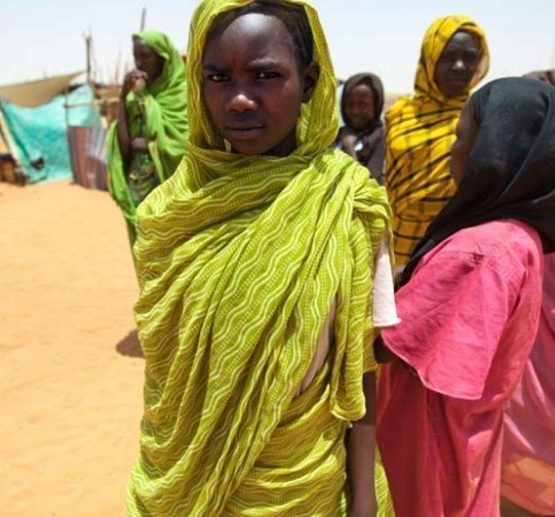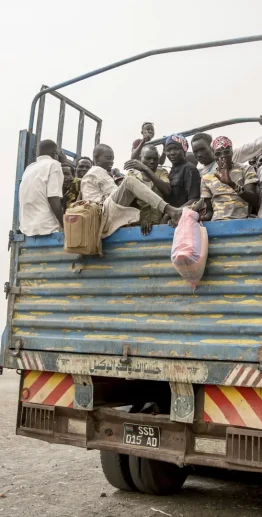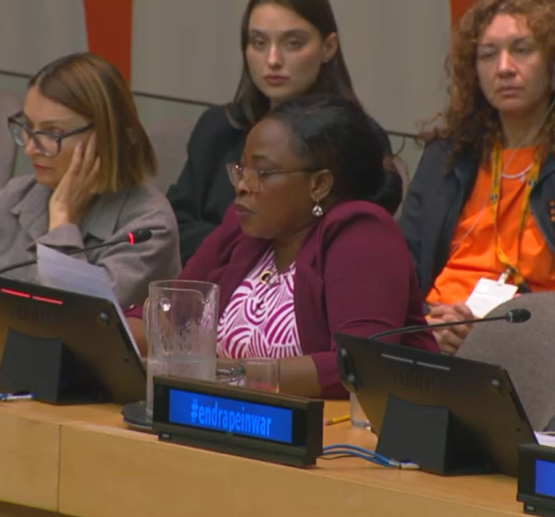Justice for Women in Sudan
Justice for Women in Sudan
Honoring Women Through Adequate Justice
This International Women’s Day, DWAG would like to recognize all the contributions women have made that have tremendously contributed to making our world a better place. However, we also must recognize that despite the progress made, there are daunting challenges facing women, especially in Darfur and other conflict affected regions.
We are gravely concerned over the continued surge of violence in Sudan and demand that the systematic use of the crime of rape must not be left unpunished. With violence escalating, women and girls in Darfur to this date still face the constant threat of rape and gender-based violence and have yet to see their perpetrators held accountable. On this day, DWAG believes we must bring their plight to the attention of the global community and demand action to end their suffering immediately.
Today, March 8th, we are pleased to recognize the outstanding courage, leadership and resilience of the women of Sudan, particularly in Darfur and other crisis-affected areas, despite all they have had to endure while continuing to rise up every day. Further, we call upon our supporters to recognize and honor victims of sexual/gender-based violence (SGBV) in Darfur by joining our call for accountability for all forms of this violence. Today’s efforts are part of a larger, month-long campaign DWAG is launching that stresses the importance of accountability for protecting and honoring women’s rights. Last week, we began by bringing attention to the crimes of former dictator Omar al-Bashir and his systematic violence against the people of Darfur, particularly women. Today, for International Women’s Day, we ask you and all our followers to join us in honoring the 2014 Tabit rape incident victims through our virtual candlelight vigil.
In 2014, Sudanese security forces carried out the attack against civilians in Tabit over a 36-hour period from October 30 until November 1, 2014. On the evening of October 31, 2014, at approximately 8pm local time, uniformed and armed military personnel entered Tabit and went house-to-house, falsely accusing residents of harboring or killing missing soldiers. After forcefully entering and searching homes, forces beat, chased out and detained men, and then raped 221 women and girls in their homes, most of which were elementary and high school girls. Regrettably, to this date, the attackers have not faced any consequences.
The Tabit incident is not an isolated one. Even today, women and girls in Darfur still face the constant threat of rape and gender-based violence, with women and girls living in internally displaced camps increasingly vulnerable to these attacks. Over the past two decades, over 3 million people have been forcefully displaced into makeshift camps, the majority of which are women and children. Internally displaced women and girls across Darfur are commonly subject to rape and sexual violence in places where women have no option but must go out to fetch firewood to feed their families. While UNAMID peacekeepers provided patrolling for women as they collected firewood, their withdrawal has put the safety of Darfuri women and girls in jeopardy. They now have nowhere to go for protection as the world moves away and ignores the suffering they endure every day in Darfur. Despite the failures of the international community, DWAG remains steadfastly committed to advocating for the protection and empowerment of women in Darfur and across Sudan.
As we mark this International Women’s Day, we would like to remind our leaders that holding perpetrators accountable is essential for hopes of a society in which men and women are equal. The international community has expressedstrong rhetoric through resolutions and declarations on the prevention of violence against women and their protection in conflict situations such as in Darfur. Unfortunately, however, most of these promises remain unkept. Therefore, we must hold our world leaders accountable to the instruments and norms they have created and repeatedly vow to uphold.
The Tabit incident in 2014 is just one example in which the international community, particularly the United Nations Security Council, has failed to make tangible efforts for justice for the women and girls impacted. There have been no investigations, nor any efforts to hold perpetrators accountable. This is a shameful betrayal not only to the women of Darfur but to the norms the UN Security Council seeks to promote. We must and will never give up the fight for justice for the Tabit victims and all women who have experienced SGBV until justice is fully served.
We believe without accountability for the crimes that have been committed against women, women’s rights will not be protected. Therefore, DWAG calls upon the following governments and institutions to take the following measures:
- We call on the Government of Sudan to prioritize criminal accountability for crimes against women, particularly in the Tabit rape incident, and to increase women’s participation in government
- We call on the UN Security Council members to prioritize protection for women in Darfur and across Sudan and hold the government of Sudan accountable for its crimes committed against women
- We call on the US government to make it clear to Sudan that the crimes committed against women in the past two decades, as well as genocide, war crimes and crimes against humanity committed in Darfur must not go unpunished
It is imperative that we all speak in one voice and demand accountability. We must tell our leaders in the face of attacks against women that they must not look the other way or let perpetrators escape accountability. In the short and long-term, the empowerment of women, an increase in their participation in government, the protection of their rights, and accountability for the grave crimes committed against them must be prioritized. And indeed, women must be included at every decision-making table, as there will never be proper accountability without providing women with the access, ability and space to engage in the pursuit of justice for themselves and their community.



